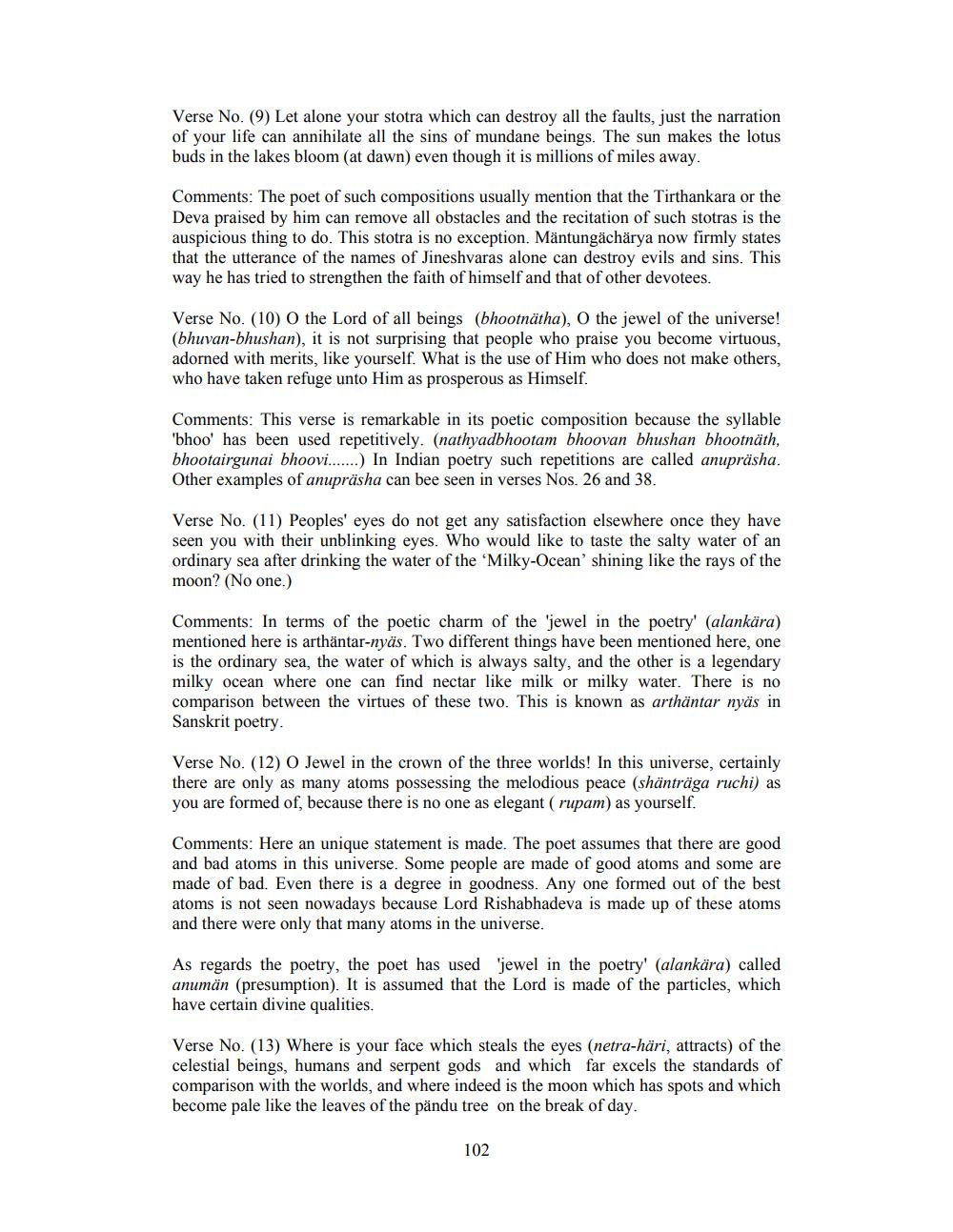________________
Verse No. (9) Let alone your stotra which can destroy all the faults, just the narration of your life can annihilate all the sins of mundane beings. The sun makes the lotus buds in the lakes bloom (at dawn) even though it is millions of miles away.
Comments: The poet of such compositions usually mention that the Tirthankara or the Deva praised by him can remove all obstacles and the recitation of such stotras is the auspicious thing to do. This stotra is no exception. Måntungacharya now firmly states that the utterance of the names of Jineshvaras alone can destroy evils and sins. This way he has tried to strengthen the faith of himself and that of other devotees.
Verse No. (10) O the Lord of all beings (bhootnätha), O the jewel of the universe! (bhuvan-bhushan), it is not surprising that people who praise you become virtuous, adorned with merits, like yourself. What is the use of Him who does not make others, who have taken refuge unto Him as prosperous as Himself.
Comments: This verse is remarkable in its poetic composition because the syllable 'bhool has been used repetitively. (nathyadbhootam bhoovan bhushan bhootnäth, bhootairgunai bhoovi.......) In Indian poetry such repetitions are called anupräsha. Other examples of anupräsha can bee seen in verses Nos. 26 and 38.
Verse No. (11) Peoples' eyes do not get any satisfaction elsewhere once they have seen you with their unblinking eyes. Who would like to taste the salty water of an ordinary sea after drinking the water of the Milky-Ocean' shining like the rays of the moon? (No one.)
Comments: In terms of the poetic charm of the 'jewel in the poetry' (alankära) mentioned here is arthäntar-nyås. Two different things have been mentioned here, one is the ordinary sea, the water of which is always salty, and the other is a legendary milky ocean where one can find nectar like milk or milky water. There is no comparison between the virtues of these two. This is known as arthäntar nyäs in Sanskrit poetry.
Verse No. (12) O Jewel in the crown of the three worlds! In this universe, certainly there are only as many atoms possessing the melodious peace (shänträga ruchi) as you are formed of, because there is no one as elegant (rupam) as yourself.
Comments: Here an unique statement is made. The poet assumes that there are good and bad atoms in this universe. Some people are made of good atoms and some are made of bad. Even there is a degree in goodness. Any one formed out of the best atoms is not seen nowadays because Lord Rishabhadeva is made up of these atoms and there were only that many atoms in the universe.
As regards the poetry, the poet has used 'jewel in the poetry' (alankära) called anumän (presumption). It is assumed that the Lord is made of the particles, which have certain divine qualities.
Verse No. (13) Where is your face which steals the eyes (netra-häri, attracts) of the celestial beings, humans and serpent gods and which far excels the standards of comparison with the worlds, and where indeed is the moon which has spots and which become pale like the leaves of the pandu tree on the break of day.
102




